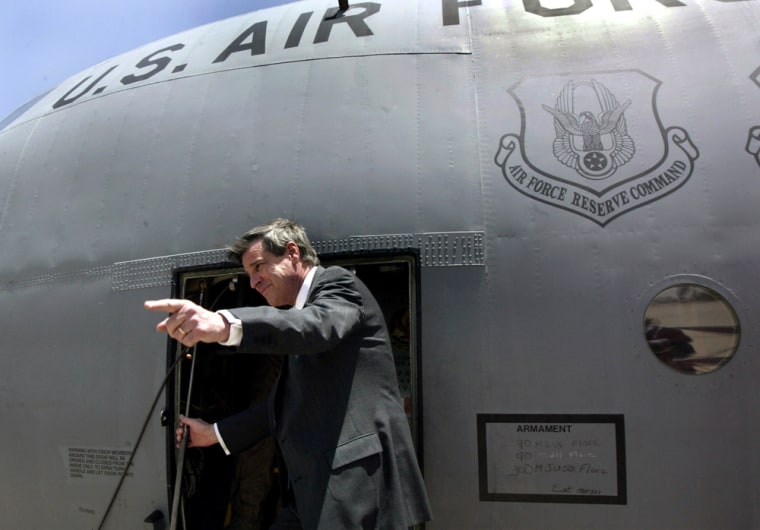Pentagon officials acknowledged Monday that Paul Bremer, the senior U.S. official in Iraq during the first year of the war, told Defense Secretary Donald H. Rumsfeld in May 2004 that a far larger number of U.S. troops were needed to effectively fight the insurgency but his advice was rejected.
Larry Di Rita, a Rumsfeld spokesman, told reporters that Bremer made the recommendation in a memorandum and that it was the only time during his 13 months as head of the U.S. civilian occupation authority in Baghdad that he offered advice on troop levels.
“He on many (occasions) demurred when asked what the proper levels of forces were during the course of his tenure there,” and that was appropriate because troop levels were not his direct responsibility, Di Rita said.
Di Rita said later that Bremer was never asked by Rumsfeld or other officials but was asked a number of times in news interviews. Bremer told ABC’s “Good Morning America” in April 2004 for example, that he deferred on this matter to U.S. generals and that as far as he knew the generals believed they had enough troops.
In an interview with NBC News anchor Brian Williams on Sunday, Bremer said that his memo to Rumsfeld suggested 500,000 troops were needed — more than three times the number there at the time. Bremer served as head of the Coalition Provisional Authority from May 2003, shortly after the fall of Baghdad, until June 2004, when Iraq’s sovereignty was restored.
Di Rita said that after Bremer made his recommendation, the chairman of the Joint Chiefs of Staff at the time, Gen. Richard B. Myers, consulted with senior military commanders to consider changes. They then told Rumsfeld that they preferred to stay at the existing level of 18 brigades, or about 145,000 troops, Di Rita said.
“And that was the end of the matter,” the spokesman added.
Many critics, including some leading members of Congress, continued to urge President Bush to increase the number of troops in Iraq as the insurgency persists. Bush stuck to the military’s plan to add forces by training Iraqis rather than sending more American troops.
There are now more than 210,000 trained Iraqis, although debate continues on how effective they are and how soon they can take over security responsibilities.
